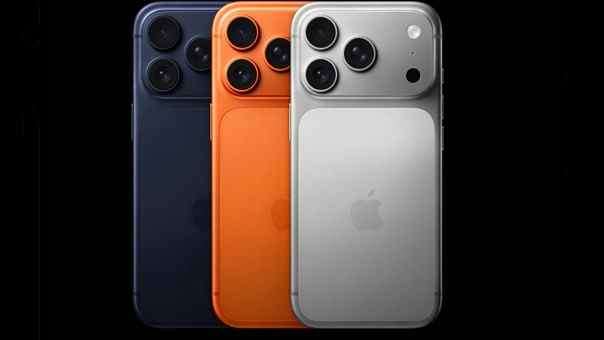Apple’s latest flagship, the iPhone 17 Pro series, has found itself in the middle of a fresh controversy being dubbed ‘scratchgate’ by users online.
The issue has sparked debate among Apple fans after several reports revealed that the new Deep Blue and Cosmic Orange variants of the iPhone 17 Pro and iPhone 17 Pro Max are prone to scratches.
The claims gained momentum following durability tests conducted by popular YouTuber Zack Nelson from JerryRigEverything. His review showed that while Apple has made design improvements, the iPhone 17 Pro lineup scratches more easily than expected, particularly around the sharp edges of the rear camera module.
Why the iPhone 17 Pro Scratches Easily
According to Nelson, the problem lies in the anodized coating used on the aluminum frame. The coating struggles to bond effectively around sharp edges, making it vulnerable to chips and scratches during everyday use. Items such as keys, coins, or even light contact with hard surfaces can leave visible marks. The issue is most noticeable on the new Deep Blue and Cosmic Orange finishes, raising concerns about their long-term durability.
Apple introduced a new aluminum unibody design in the iPhone 17 Pro series, which improves heat dissipation and overall performance. However, this scratch issue overshadows the premium design, leaving many questioning Apple’s choice of finish.
How to Protect the iPhone 17 Pro
For now, experts suggest that the only reliable way to prevent scratches is by using a protective case. Despite the vulnerability around the camera module, both the iPhone 17 Pro and Pro Max excelled in other durability areas, performing strongly against bending, screen pressure, and heat tests.
iPhone 17 Pro Max Price Highlights
256GB, 12GB RAM – $1,419 / €1,449
512GB, 12GB RAM – €1,699 / £1,399
With prices this high, users may be disappointed that their premium devices are not scratch-resistant. While Apple has yet to respond to the scratchgate controversy, the debate highlights how design choices can impact real-world durability for even the most advanced smartphones.
